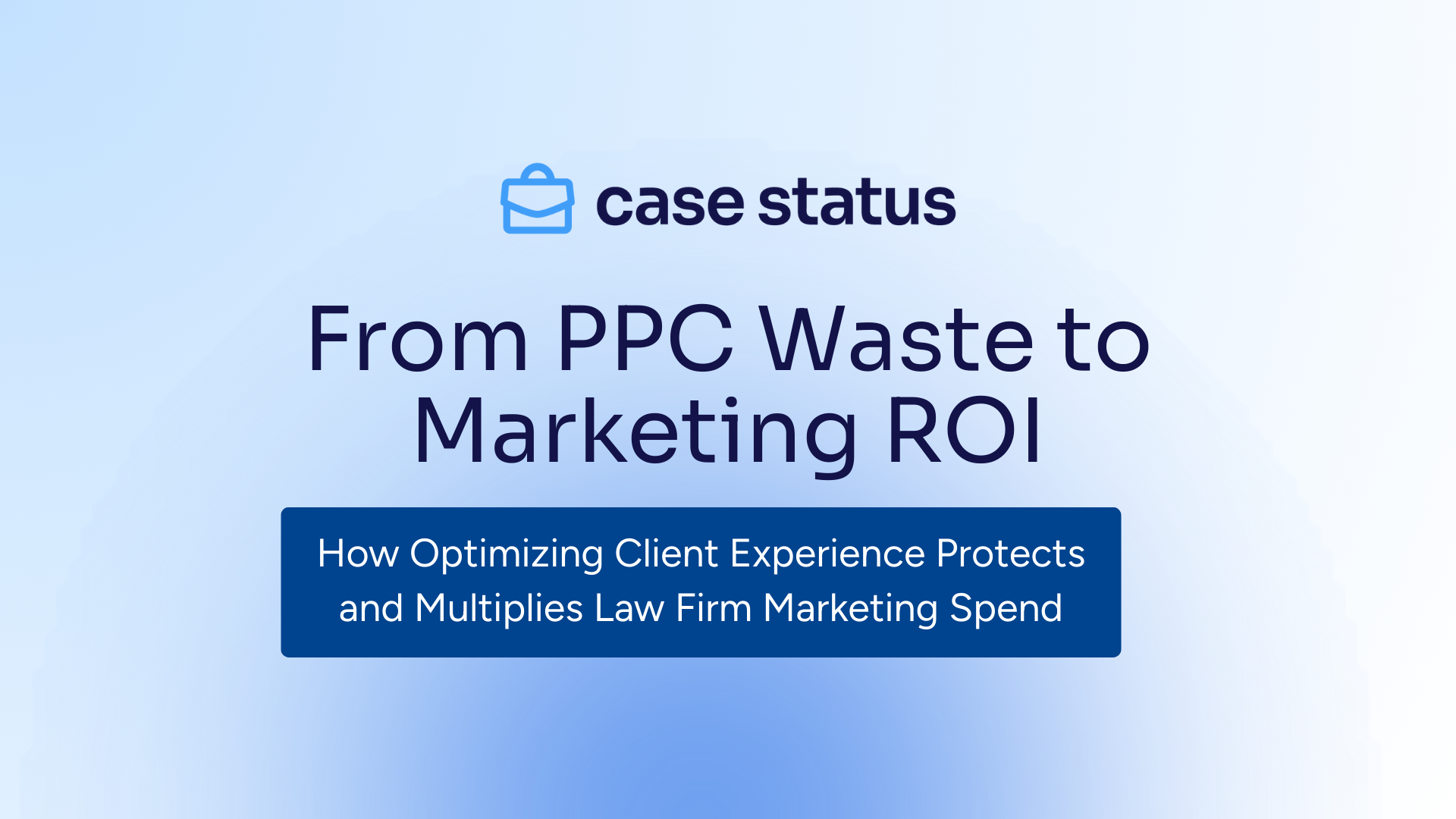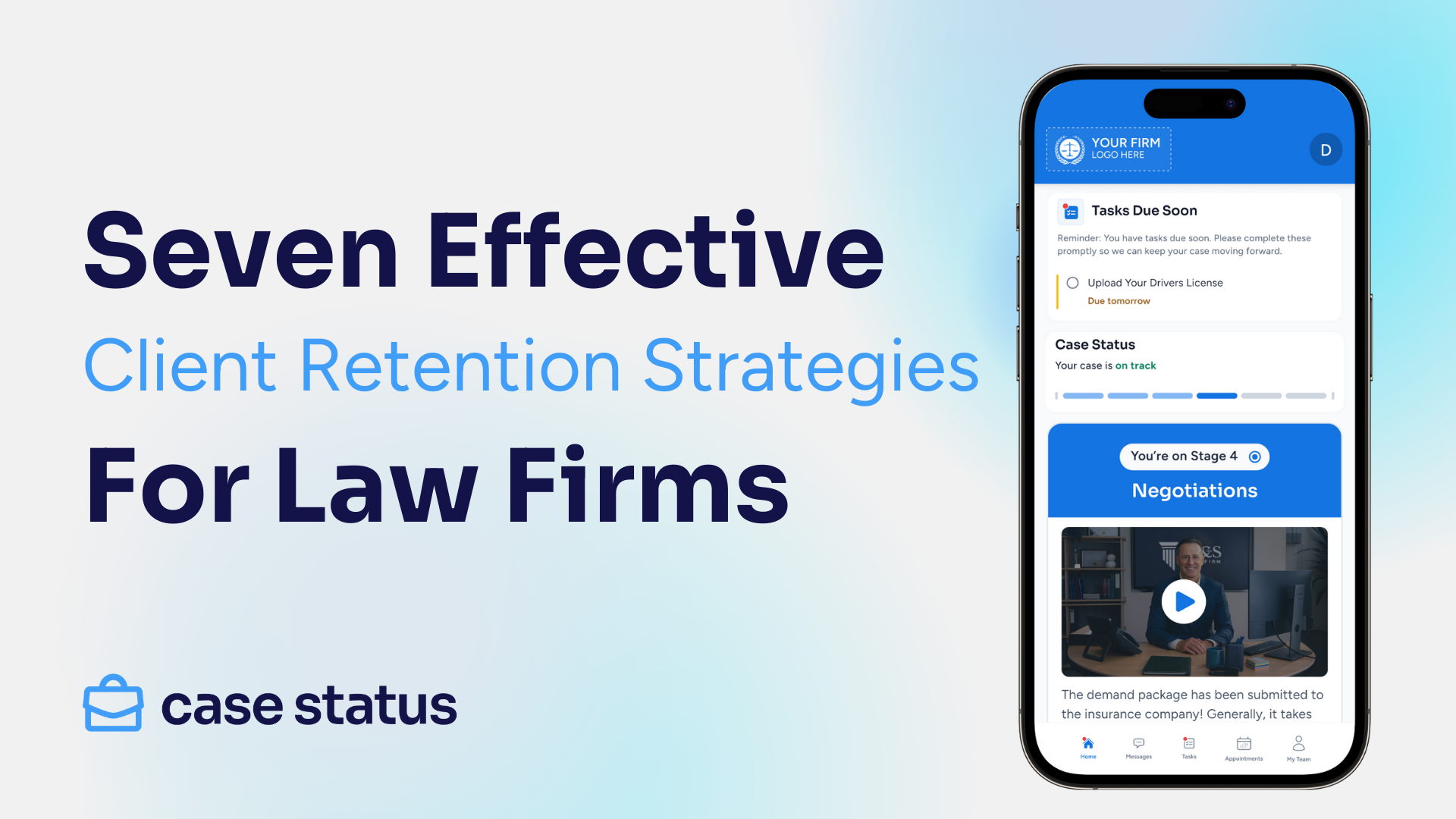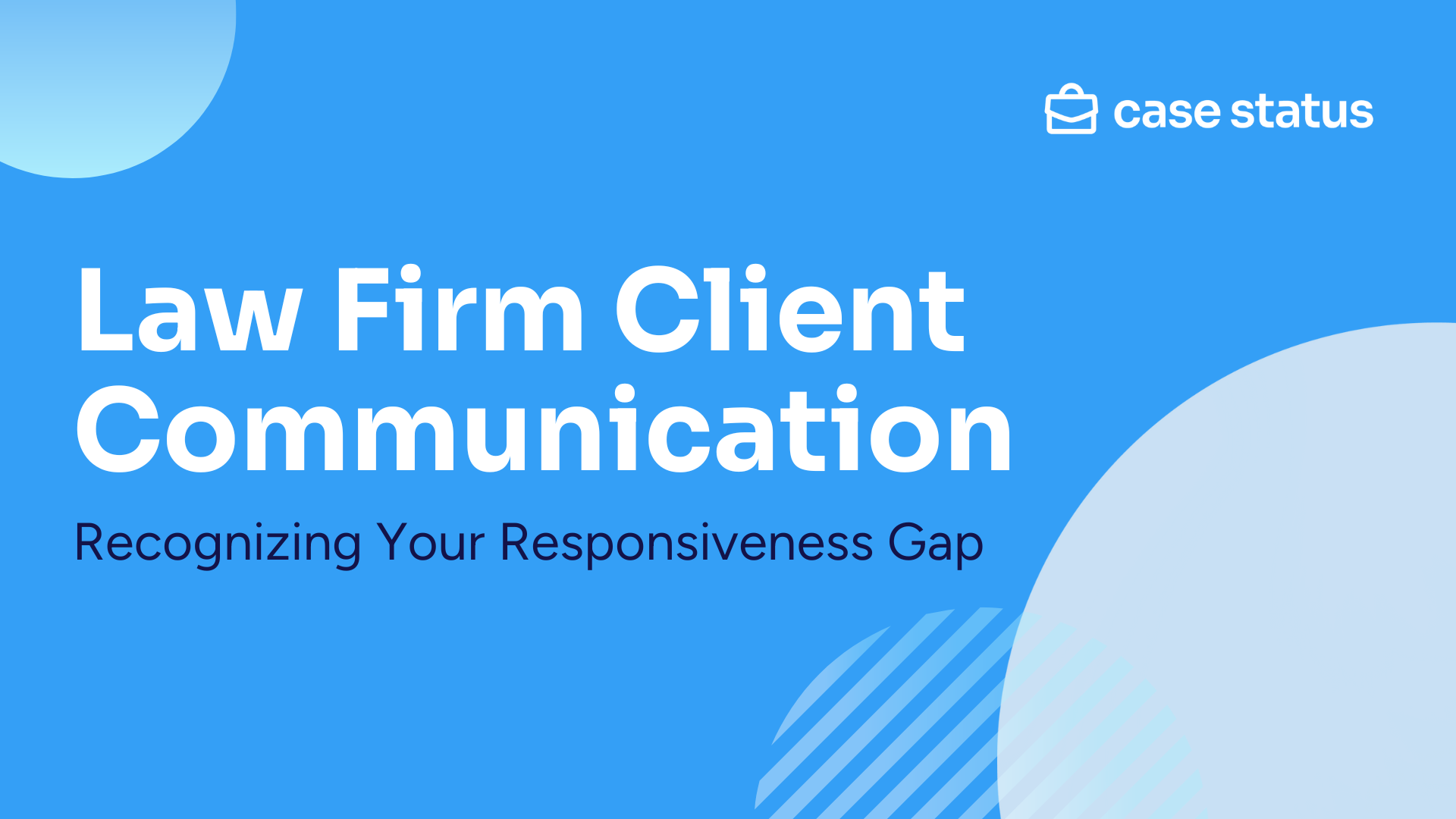
If anyone understands the struggle of time management, it’s a lawyer. Ask how lawyers manage time and what their biggest hurdles are, and they’ll likely mention fitting all of their most important tasks into the day.
As soon as they arrive at the office, there is an endless barrage of phone calls, emails, and client meetings that distract them from all the other hard work they need to do. Work that delivers the results clients are paying for. This work often winds up relegated to the off-hours, which lays the ground for lawyer burnout.
To ease the stress and make business more efficient, productivity tools for lawyers are essential. These are legal software that help all types of lawyers manage time more effectively.

How do lawyers manage time?
Lawyers manage time by using a variety of time management strategies to balance their legal work with the client-facing side of their business. There are several ways they can achieve a more efficient method of communicating with their clients without taking away from their jobs. The most effective? Using legal software that automates the bulk of their most time-consuming tasks.
A legal client portal is one of the most invaluable resources a lawyer can have. It helps simplify the communication process while offering remote support for clients. They can log into the app and read case updates, respond to messages, and access various types of documents.
By eliminating the need to call their lawyer’s firm, clients become happier, and they are more likely to refer others to the practice. On the business end, lawyers now have more time to dedicate themselves to performing the demanding services they’ve been paid to. Instead of losing 6+ hours to performing administrative tasks and communicating with clients, they can invest their time, knowledge, and skills into what they’re really passionate about doing.
Other productivity tools to help lawyers manage time easier include:
- Legal Practice Management Platforms (LPMPs): Robust software that offers a suite of automation features, including calendaring, client communication, billing, and document management.
- A Legal Client Relationship Management (CRM) Software: This type of software helps law firms stay in contact with both onboarding and existing clients while creating structure for the intake process.
- Legal Research Tools: There is a wide range of legal research software that makes casework easier. Usually AI-powered, these tools can analyze vast amounts of data in minutes to produce relevant, meaningful results.
In addition to software, all types of lawyers can benefit from some time management for lawyers strategies, such as the Pomodoro technique, where you work without breaking focus for 25 minutes, followed by a 5-minute break. List-building is also an effective strategy that helps attorneys prioritize their day around what is most important rather than what is the most urgent.
Lawyers, especially solopreneurs and associates, tend to take on as much work as they can. While it may seem like this is the best course of action, it ultimately drains your energy and gives you less time to dedicate to all of your work.
Prioritization is key; there will always be work that needs done, so rather than trying to do it all, a lawyer should focus on what will have the greatest impact on their cases.
Why is time management important for lawyers?
Without good time management, a lawyer can be quickly overwhelmed by deadlines. And as stress and anxiety levels mount, productivity decreases. Worse, your clients can begin to feel the tension in communication. When their satisfaction wanes, you only feel more stressed and compensate by working harder.
Of course, with energy levels already depleted, the quality of work goes down, and you find yourself going in circles. Deadlines may loom too close for comfort, and you are more prone to making errors that could cost you clients.
Time management protects both your business and your sanity. It also allows you to find much-needed balance between your profession and personal life. Although being a lawyer is a lifestyle in many ways, you have to acknowledge, for your own health, that your career is not your entire identity.
By finding more ways to balance your time, you can perform better work faster, enjoy more fulfilling relationships with your clients, and have more time to dedicate to your personal life as well.
How many hours does a lawyer work per day?
It’s not uncommon for lawyers at large law firms to work over 80 hours a week. In medium and small firms, those hours may drop to between 50 and 60.
Solo attorneys may seem to have it made with the ability to choose their own hours, but because they manage their entire firm alone, they often face even more challenging work.
Clio, a leading legal software company, took a survey of lawyers to learn more about their work hours. In their 2022 Legal Trends Report, 73% of lawyers report working outside of standard business hours, as well as Saturday (42%) and Sunday (32%). That number increases for solo attorneys with 54% reporting they work on Saturday and 40% on Sunday.
The long list of expectations, coupled with the sheer volume of work a lawyer has to handle for multiple clients, means they tend to spend their evenings and nights entrenched in the work they couldn’t get to during the day.
This is what makes productivity tools so valuable — legal software helps busy lawyers use their time more wisely, get more work done, and see better results.
How can a lawyer be more productive?
There are several ways lawyers can manage their time better and be more productive:
- Delegate tasks to your team members whenever possible.
- Write to-do lists ranked by order of importance.
- Break down your day, setting aside time for phone calls, emails, and work.
- Outsource non-legal work to lighten your load.
- Make back-to-back calls whenever you can to avoid being swamped all day.
- Tackle the most challenging tasks first, so you maximize your brain power in the morning.
- Automate processes using legal software.
Tools like Case Status make it easier to help lawyers manage time and their practices without compromising on customer service. Clients have deep emotional investments in the outcome of their cases; increasing support without burdening yourself is one way to enhance their experience, grow your business, and deliver better results.
Between 75-80% of legal clients adopt our mobile app, saving law firms an average of 50% in phone calls and increasing net promoter score (NPS) by at least 30 points.
To learn more, contact us to book a free discovery call with one of our team members.



